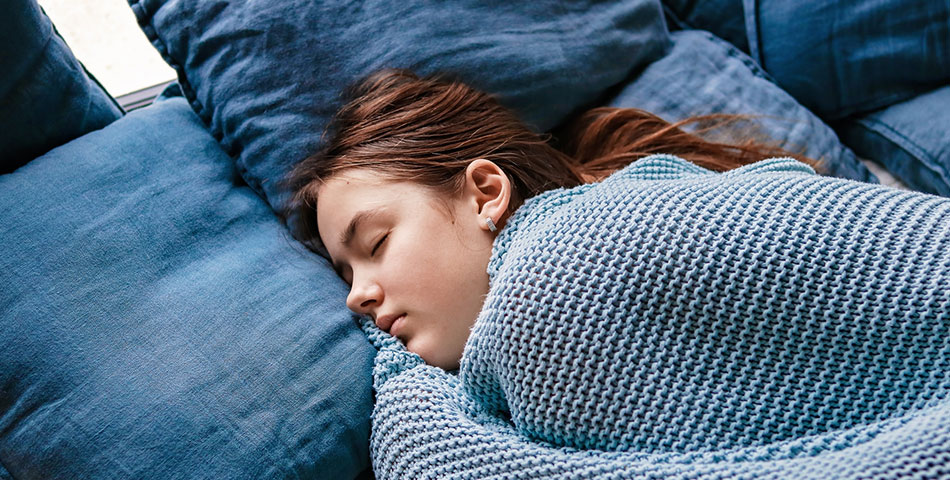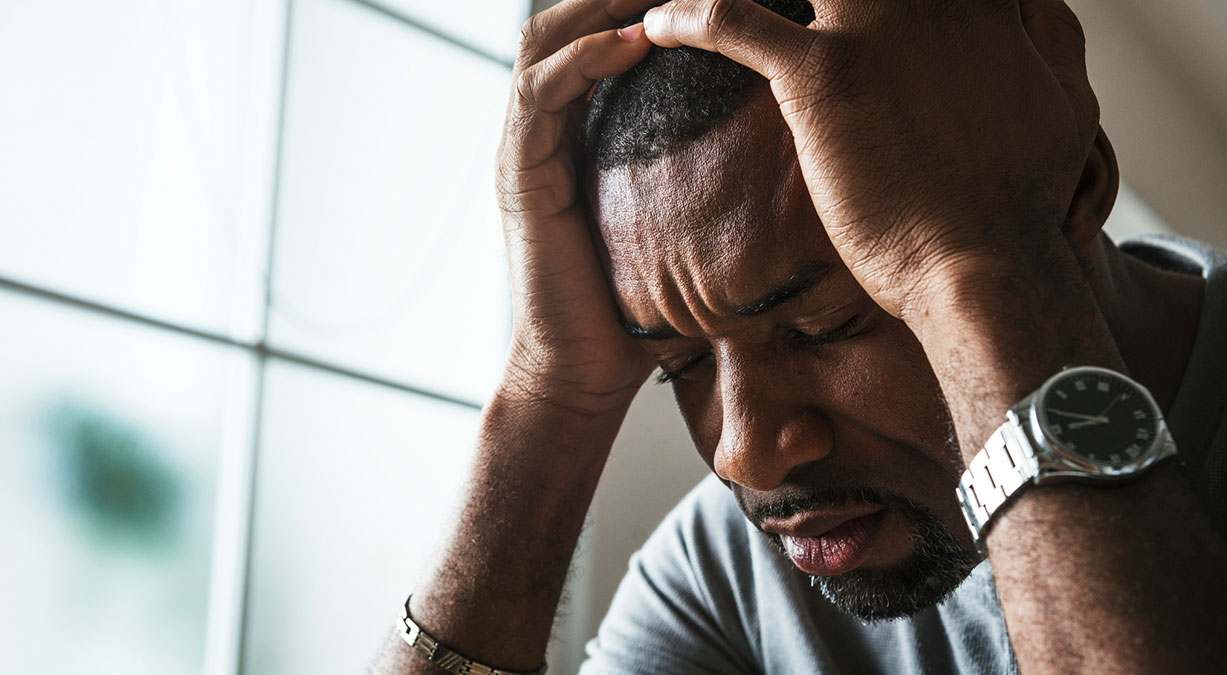An epidemic is raging across America.
No, we’re not talking about a virus . . . the epidemic we have in mind might be a little less obvious at first.
What is it? As you might’ve guessed from the title above, we’re talking about depression.
Major depressive disorder affects roughly 7% of American adults—that’s over 17 million people.
And depression doesn’t occur in isolation. It’s a burden on one’s physical health and on one’s family and friends. Research has correlated depression with weight gain, sleep problems, and even coronary artery disease. It’s a lens through which nearly every aspect of life becomes more difficult.
But because depression is largely invisible, it often goes unnoticed. Out of sight, out of mind, as they say. Indeed, existing treatments for depression have failed to make the same level of progress as some other more high-profile fields.
Until now. People are starting to realize that CBD oil, a completely safe hemp-derived substance, might alleviate the symptoms of depression without causing severe side effects. And this has gotten people’s attention, for more than a few good reasons.
Here’s a quick guide to what’s ahead in this article:
Can CBD Help With Depression?
CBD is a phytocannabinoid naturally produced by cannabis and hemp plants. CBD is good for the plants that make it . . . and interestingly enough, it’s also good for us. In a beautiful example of symbiosis, CBD fits perfectly into one of the most innate parts of human biology: the human endocannabinoid system. This interaction reduces stress, quiets inflammation, aids with sleep, and much more.
And, yes, it may even help with depression. While more research needs to be done in this area, initial studies indicate that CBD may reduce both anxiety and depression by interacting with the brain’s serotonin 5-HT1A receptors.
From a broader perspective, it just makes good sense: if CBD helps a person sleep better, move better, and generally feel better, wouldn’t that person feel less depressed? Absolutely—almost by default. Granted, the interconnectedness of things means CBD’s most specific benefits for depression are hard to quantify. But countless CBD users are finding that the benefits are still there. Forbes reported back in 2018 that depression is one of the primary things for which people take CBD, and a related survey by The Brightfield Group found that an amazing 80% of users experienced relief.
CBD, Depression, and Sleep

Interestingly, one of the occasional side effects of CBD (particularly at higher doses) is drowsiness, which in this case may not be such a bad thing. If you have sleep problems like insomnia (or maybe you just find it hard to shut off your brain at night!), this side effect can actually help. All you need to do to leverage it is take a little more CBD than you normally would, a little closer to bedtime.
If you’re used to taking 20 milligrams a day, for example, you could take an additional 10 mg’s one or two hours before bed.
Many users find CBD’s effect on sleep so pronounced that it benefits other areas of their life, too. Just imagine . . . if you naturally fell asleep at 10 every night, effortlessly got in your 8 hours, and woke up feeling refreshed . . . wouldn’t you be happier the next day? Probably so, especially if you’ve suffered from depression.
Indeed, scientists have found a strong correlation between abnormal circadian rhythm and abnormal mood problems. It’s a classic chicken-and-egg scenario as far as which problem came first, but restoring one’s ‘internal clock’ could still help. When circadian rhythm is optimal, one’s mood tends to stabilize almost by default.
One study put it this way: “behavioral interventions . . . can also effectively reduce insomnia occurring in the context of depression . . . and have direct beneficial effects on daytime symptoms of depression.” If CBD helps you sleep better at night, then chances are good it’ll also indirectly benefit your daytime mood.
How to Use CBD
How then can CBD be used to combat depression? Something called CBD microdosing might be the most efficient way. Microdosing involves taking small amounts of CBD consistently so as to always keep a small amount of cannabinoids in one’s system.
So, for example, if you’re accustomed to taking 20 milligrams of CBD per day, you might opt to divide this daily dose into 5 smaller doses of 4 milligrams each. Microdosing avoids CBD’s potential side effects (more on them later) and promotes stability and calm.
As far as what types of CBD product to take, a full spectrum CBD oil is probably best. Bonus points for those who opt for a nano-enhanced CBD oil ; these oils dramatically boost CBD’s absorption. But the very most important thing to remember is consistency . . . so take whatever type of product you can stick with and enjoy.
Does CBD Help With Anxiety?
CBD may be great for depression, but those of you with chronic anxiety need not feel left out. The very same serotonergic actions that allow CBD to improve one’s mood can have a significant impact on anxiety. The effects are so pronounced, they even apply to one of the most stressful situations of all: public speaking.
That’s exactly what a pivotal 2011 study discovered: “Pretreatment with CBD significantly reduced anxiety, cognitive impairment and discomfort [during] speech performance.” In other words, CBD seems to be able to reduce anxiety without any corresponding foggy thinking.
Interestingly enough, those with both depression and anxiety often respond great to CBD microdosing. Some users prefer using CBD oil in tandem with a CBD vaporizer for immediate relief.
How Does CBD Compare to Antidepressants?
So, how does CBD compare to conventional, pharmaceutical antidepressants? From a biochemical perspective the differences are stark: many pharmaceuticals are SSRIs that hone in on circulating serotonin levels, but CBD seems to activate an incredible number of different mood-related receptors en route to gently raising serotonin.
Another plus: CBD’s side effects are pretty mild compared to what you might expect from conventional antidepressants. Here’s a short list of the somewhat alarming effects of standard antidepressants, courtesy of Healthline:
- Nausea
- Dry mouth
- Restlessness
- Headaches
- Erectile dysfunction
- Agitation (jitteriness)
- Insomnia or drowsiness
- Digestive problems including diarrhea
- Decreased sexual desire and difficulty reaching orgasm
On a related note, a 2012 study of schizophrenic patients compared CBD and valium directly and found that the CBD worked just as well. As a bonus, patients given CBD were able to avoid valium’s most common side effects, which include wonky motor control, weight gain, and hormonal imbalances. Sounds like a pretty good alternative to pharmaceuticals to us.
CBD’s Side Effects

Just to be clear, CBD doesn’t have many side effects, and some of the most common side effects attributed to CBD may actually be caused by the additives found in low-quality CBD oil. That said, here’s what could be possible:
- Nausea
- Dry mouth
- Headaches
- Drug-drug interactions
- Terpene allergies (very rare)
- Drowsiness
Keep in mind that these side effects are only experienced with a high dose of CBD, a much higher dose than one typically requires to address depression. Like most other cannabinoids, CBD’s effects are biphasic: they tend to level off and then start diminishing at a certain point. If you begin to experience side effects, you can simply either lower your daily dose or experiment with taking small CBD microdoses throughout the day.
Frequently Asked Questions
Below are a few more common topics you may be wondering about. Expect some overlap between them and earlier content; these FAQ’s are meant to provide simple, actionable snapshots more than anything else.
How much CBD should I take for depression?
CBD dosing is highly individualized. We’d encourage you to simply take your normal CBD dose, whether that’s 5 or 10 or 20 or more milligrams per day. You might consider spreading your daily dose throughout several smaller microdoses, or taking more CBD at night if your depression makes it hard to sleep.
How should I use CBD for depression?
One word: consistently. The more consistently you take CBD, the better. So choose a product you like (preferably a full spectrum, nano-enhanced product) and take it daily.
How fast does CBD oil work for depression?
CBD’s effects are often subtle at first. The first time you use CBD, you might notice a slight shift in perception where the metaphorical fog lifts, colors become brighter, and life becomes more hopeful . . . but this doesn’t always happen immediately. It can take up to 2-4 weeks for CBD’s benefits to really kick in. Over time you might even realize that CBD is helping you make positive lifestyle changes.
How well does CBD work for depression?
Research by the Brightfield Group hints at an 80% success rate, though this figure is so high as to seem almost unbelievable. Let’s just say that CBD could be the catalyst that gets you out of the mental rut you’ve been stuck in; once you’re up and out of it, what you do is up to you! While we can’t make any medical claims or guarantee that CBD will work for you, the odds are surely in your favor . . .
To Your Health,
Green Maiden




